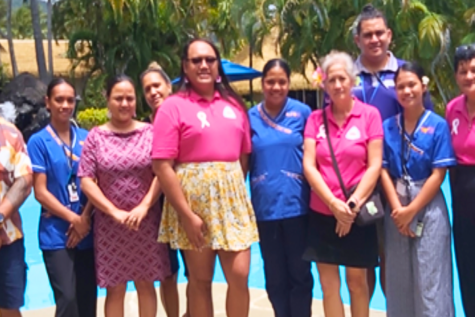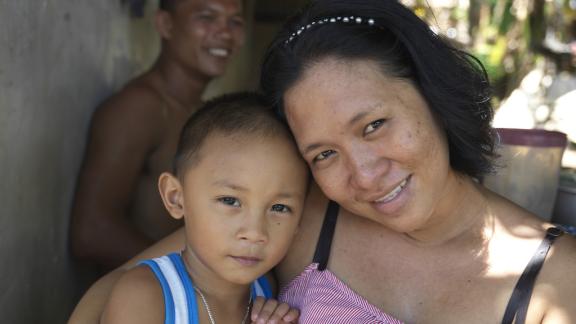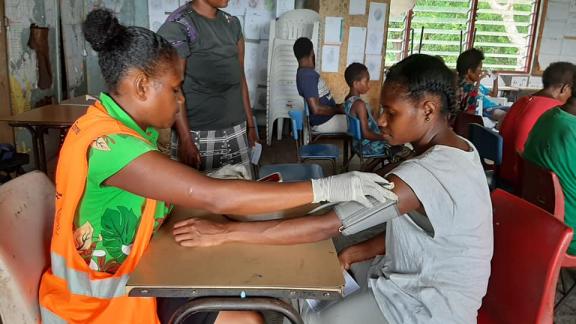Spotlight
A selection of resources from across the Federation

Cook Islands, New Zealand
Ora’anga Meitaki no te Vainetini: Cook Islands Women’s Wellbeing in the Context of Abortion
In 2022, research on abortion, including unsafe abortion, in Cook Islands was conducted by the University of New South Wales, University of the South Pacific Cook Islands Campus Te Puna Vai Mārama | Centre for Research, and Cook Islands Family Welfare Association (CIFWA). Ora’anga Meitaki no te Vainetini: Cook Islands Women’s Wellbeing in the Context of Abortion includes the lived experiences and stories of women, advocates, support persons and health workers in the Cook Islands and Aotearoa New Zealand.
Filter our resources by:


| 07 September 2021
Annual Report 2020
This Annual Report summarizes the collective efforts and accomplishments of IPPF Member Associations and Secretariat in East & South East Asia and Oceania Region (ESEAOR) for 2020. It also contains some stories behind the statistics. Some of the highlights include advocacy wins (contributed 22 policy wins related to SRHR); reached more than 22 million youth with comprehensive sexuality education (CSE); and delivered over 15.7 million sexual and reproductive health services to more than 5 million clients. Read on for more details.
| 16 June 2021
Meeting Needs of Young People for Comprehensive Sexuality Education
Many young people, who took part in this review, are telling us that they are not yet receiving quality sexuality education in a timely manner. Less than a third of online youth survey respondents feel that their school taught them about sexuality ‘well’ or ‘somewhat well.’ Satisfaction with sexuality education was even lower among lesbian, gay, bisexual, transgender and intersex youth respondents, and respondents with disabilities. Sexuality education is often starting too late. For example, 44% of girls had not received information on menstruation before their first period. As a result, many young people seem to be turning to other sources such as peers and the Internet - sources that are not always reliable. Young people, including those from vulnerable populations, should be engaged in comprehensive sexuality education design, planning and evaluation for both in- and out-of-school programmes.
| 16 June 2021
Monitoring and Assessment for Comprehensive Sexuality Education
Most countries in Asia and the Pacific do not have a clear monitoring and assessment system for sexuality education. A monitoring and assessment of school-based comprehensive sexuality education (CSE) should be integrated into the Education Management Information Systems (EMIS) or other national measures of education quality to assess the quality of delivery and student outcomes, as well as maintaining the quality of the curriculum. CSE curricula should also be piloted prior to implementation to ensure content is adjusted and takes feedback from participants into consideration before large-scale implementation. Moreover, the factsheet explains why CSE should be delivered as an examinable subject to observe learning outcomes. Students and teachers may also take the content more seriously if it is taught as an examinable subject.
| 16 June 2021
Teachers’ Preparedness for Comprehensive Sexuality Education
While two-thirds of the Asia-Pacific countries surveyed are providing sexuality education pre- and /or in-service training to teachers, the quality and content are not known. All countries should develop country-specific curriculum for teacher training for effective, learner-centered comprehensive sexuality education (CSE) delivery, build competencies and skills of teachers with quality pre-service, in-service and refresher training as well as reference material, and promote supportive supervision, sharing and learning platforms for teachers delivering CSE.
| 15 June 2021
Curriculum for Comprehensive Sexuality Education
Over half of the Asia-Pacific countries surveyed teach sexuality education in some form as a mandatory subject. However, it is often integrated into other subjects. It is recommended that school-based comprehensive sexuality education (CSE) is taught as a mandatory and stand-alone subject. When sexuality education is optional, a significant number of young people are at risk of missing the opportunity to receive education on their sexuality. In nearly half of the countries surveyed, age-appropriate sexuality education is not introduced to young people in early childhood. Children should also receive age appropriate CSE from early primary, and before the onset of puberty and sexual activity, and education should continue throughout adolescence and adulthood. None of the countries in Asia and the Pacific cover all the eight concepts outlined in The International Technical Guidance on Sexuality Education (ITGSE) sufficiently. At both primary and secondary levels, school should cover all eight key concepts in the ITGSE in an age-appropriate manner and in-depth.

| 15 June 2021
Enabling Framework for Comprehensive Sexuality Education
While the majority of countries in the Asia and Pacific region have laws or policies related to sexual and reproductive health and/or sexuality education for young people, commitment to comprehensive sexuality education (CSE) varies significantly across these countries. National laws and regulations mandating the provision of sexuality education in schools are vital for ensuring an environment where accurate CSE can be taught. With laws and policies, the implementation of CSE becomes a matter of institutional policy, rather than the personal choice of individuals.









